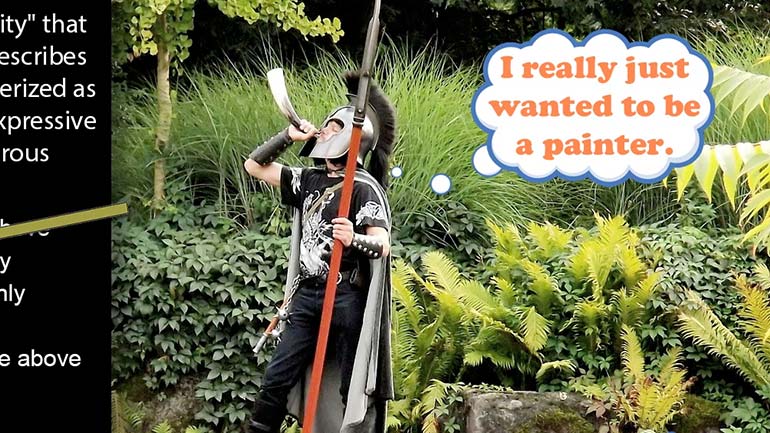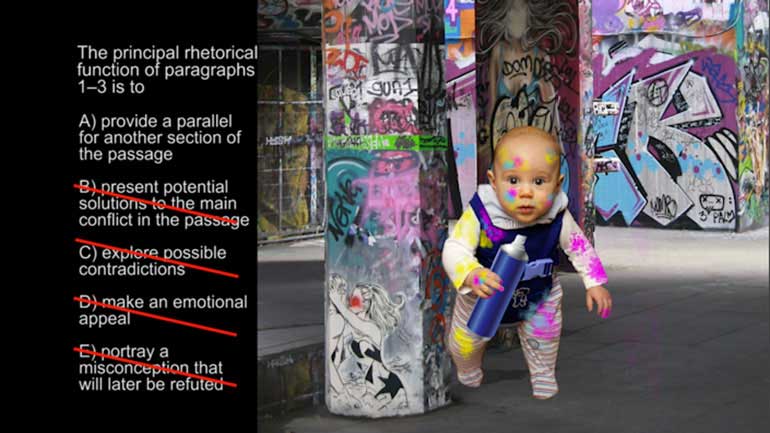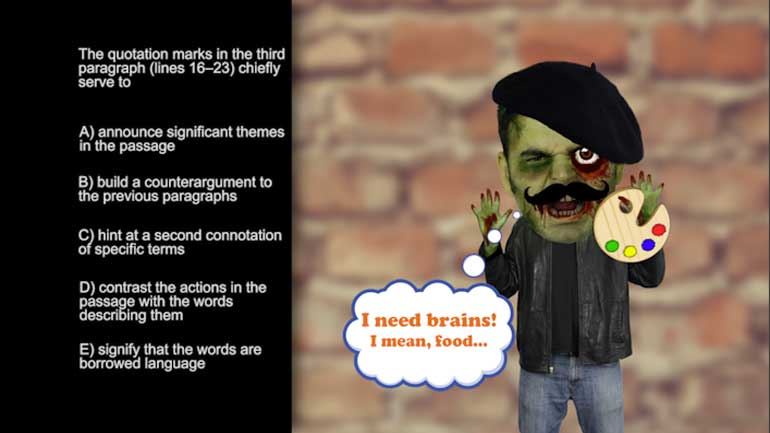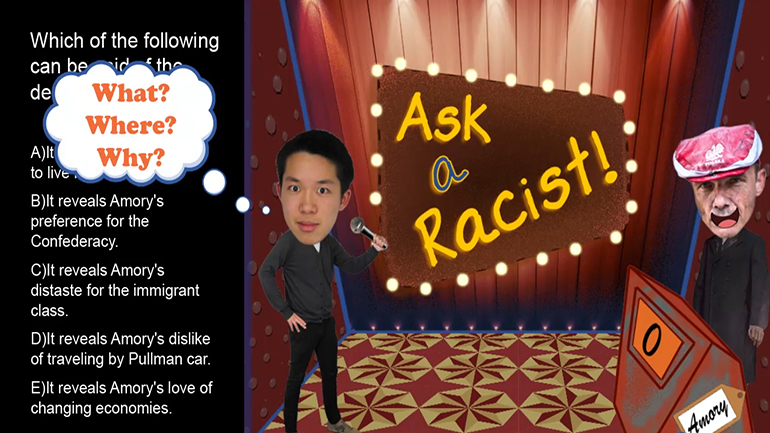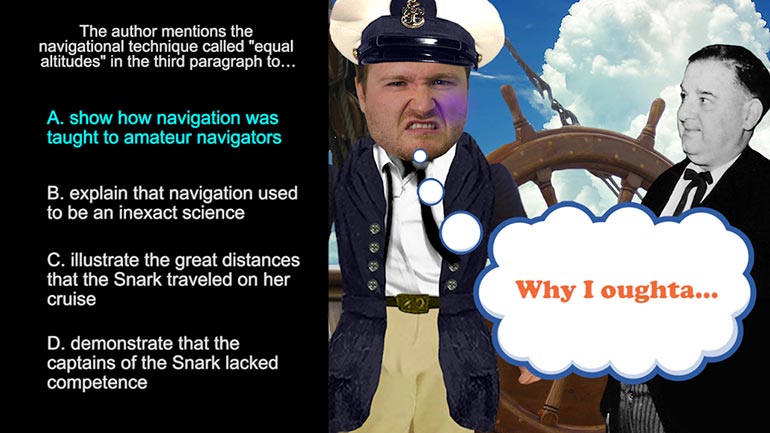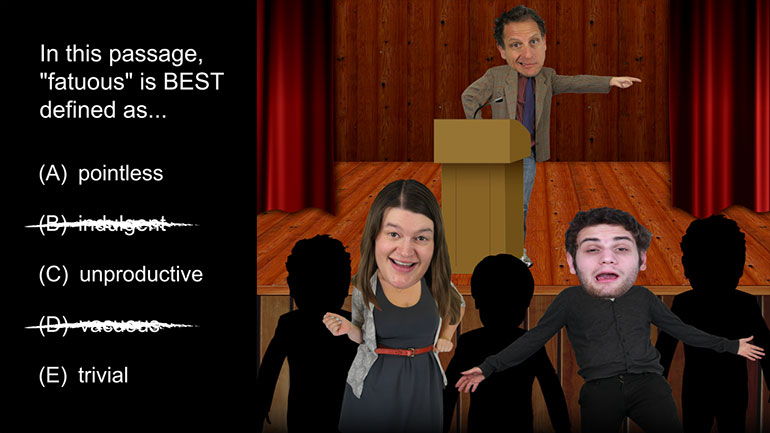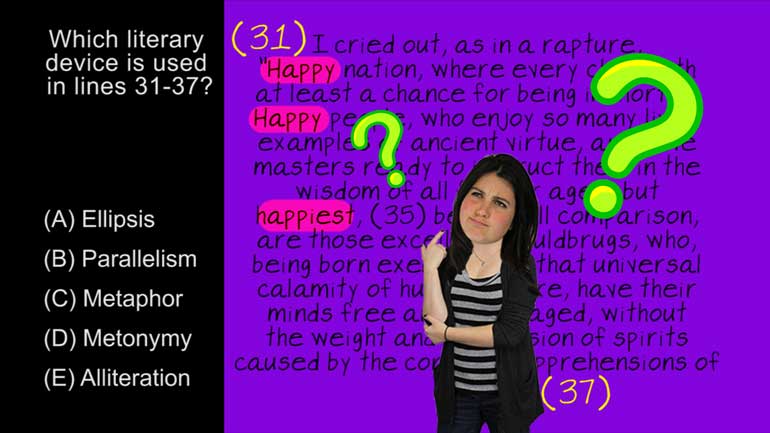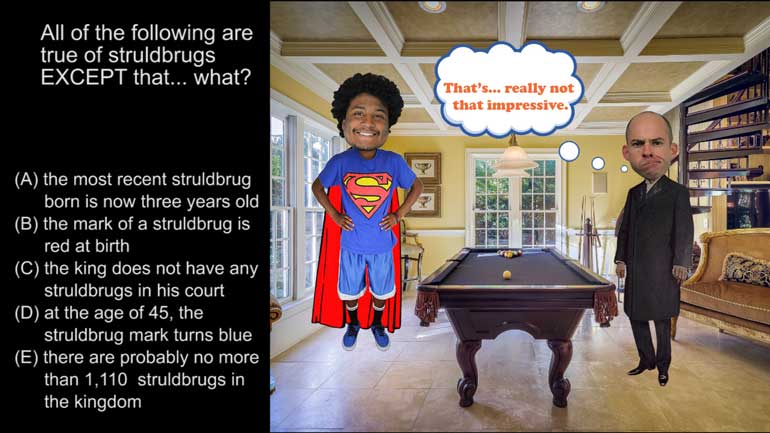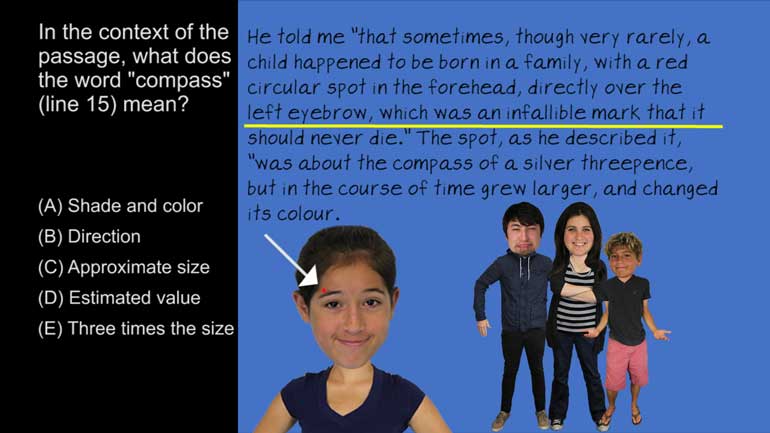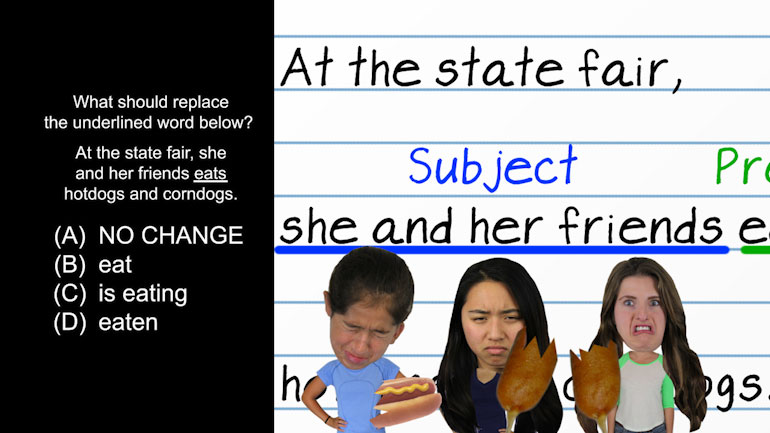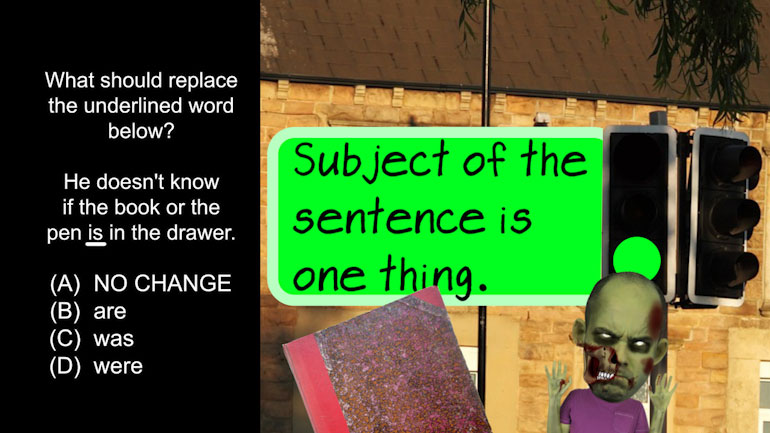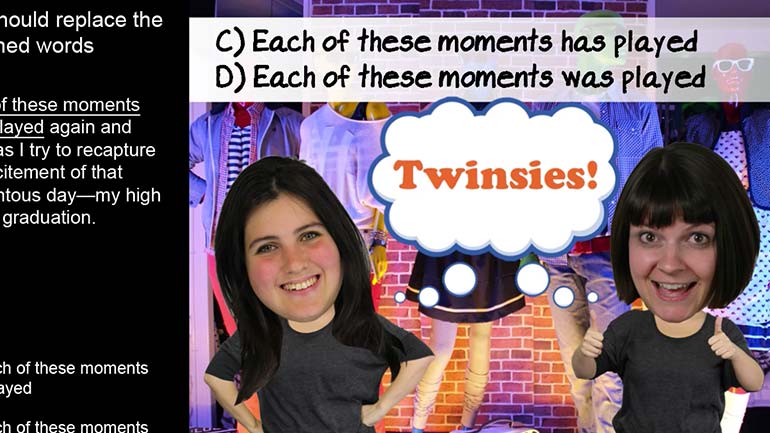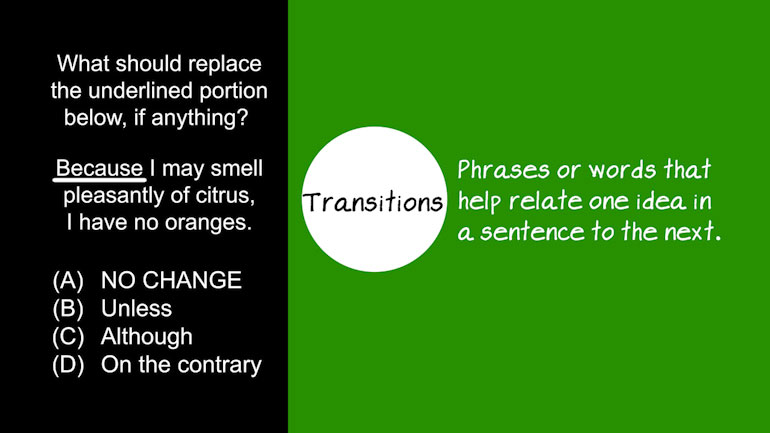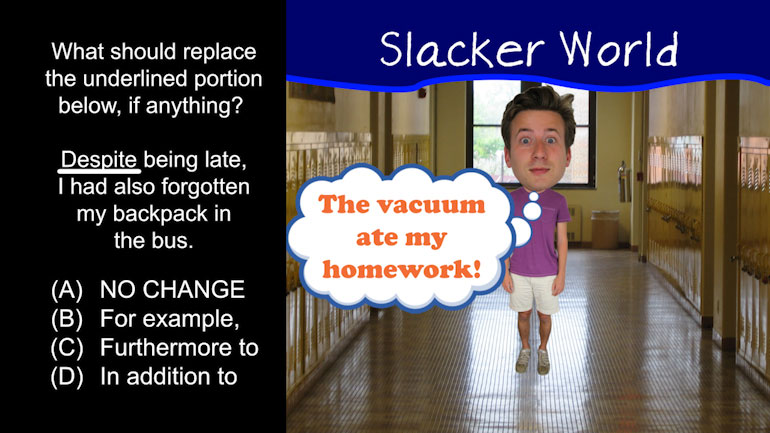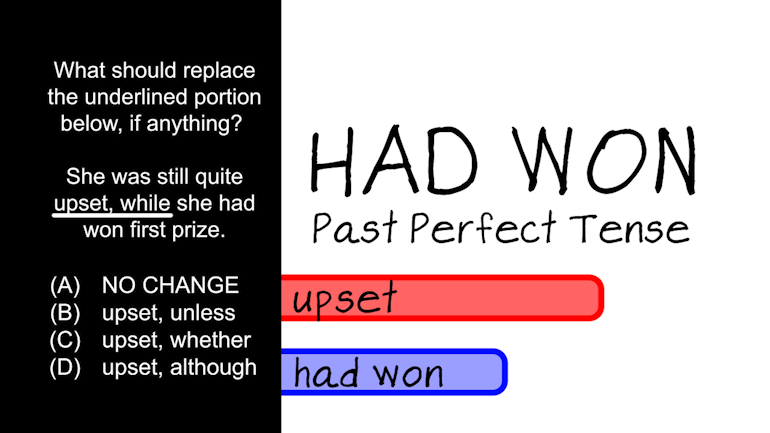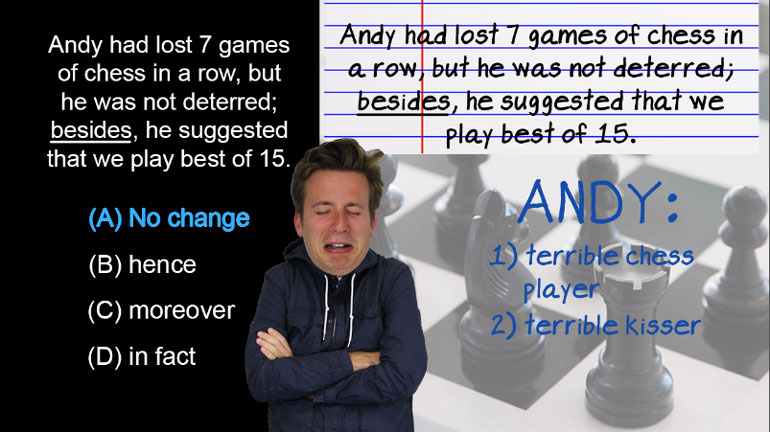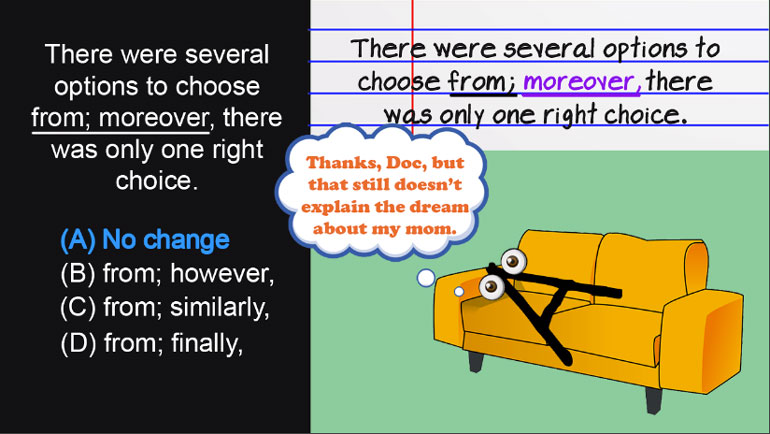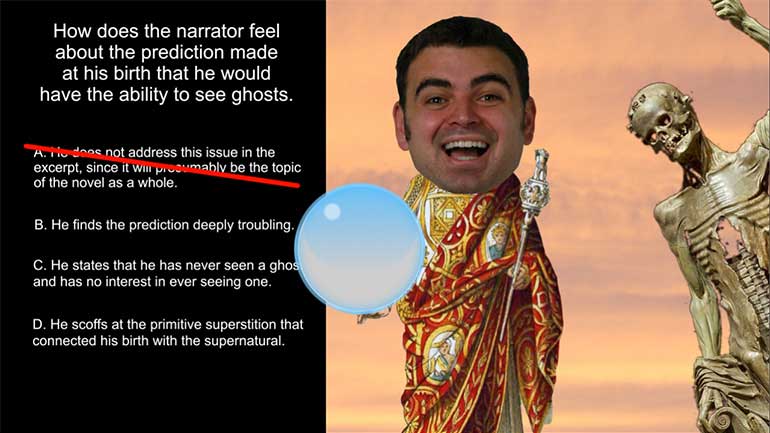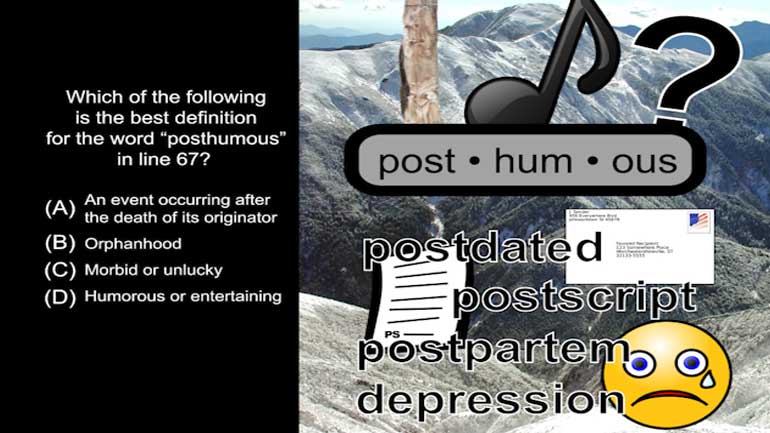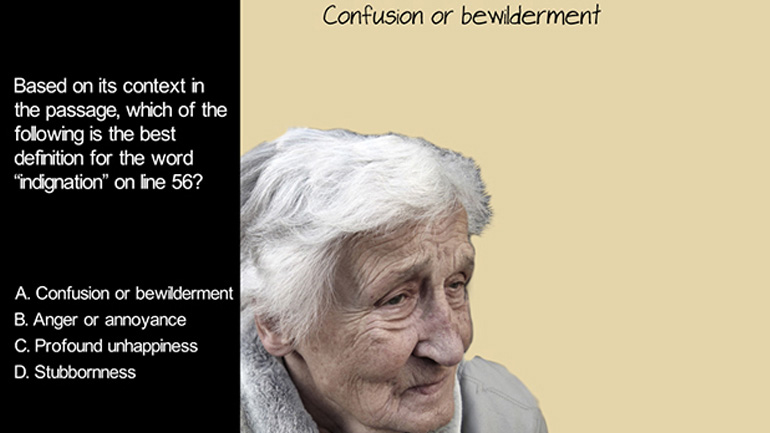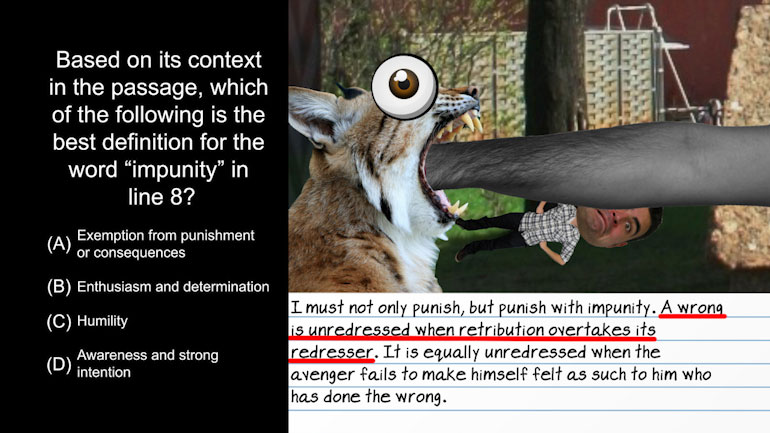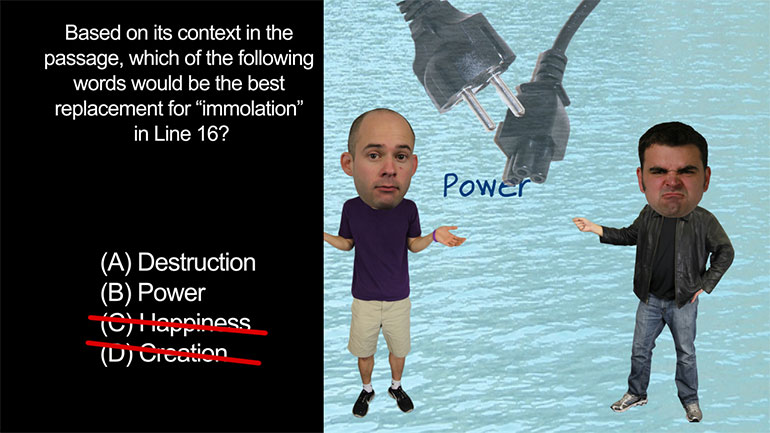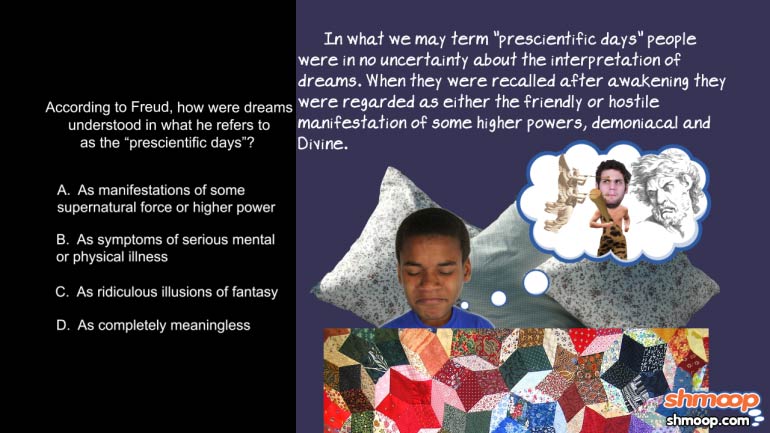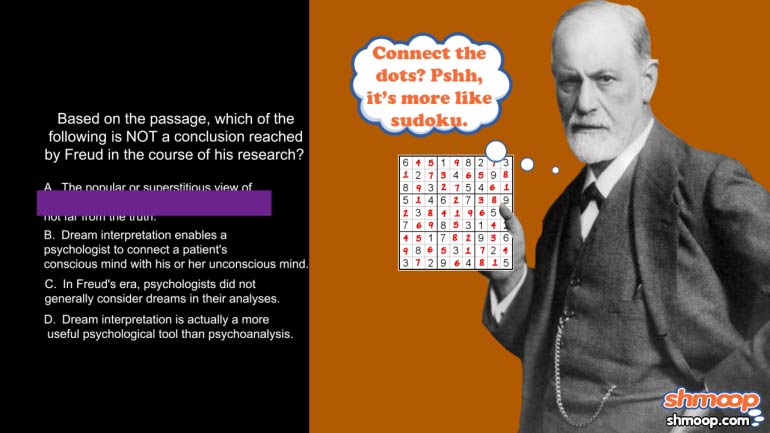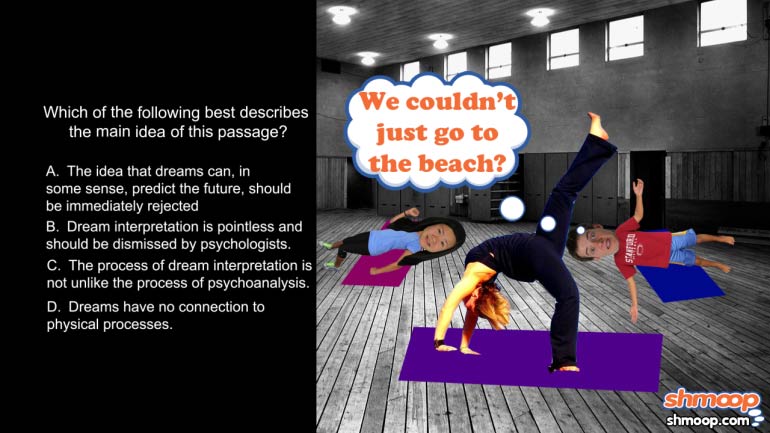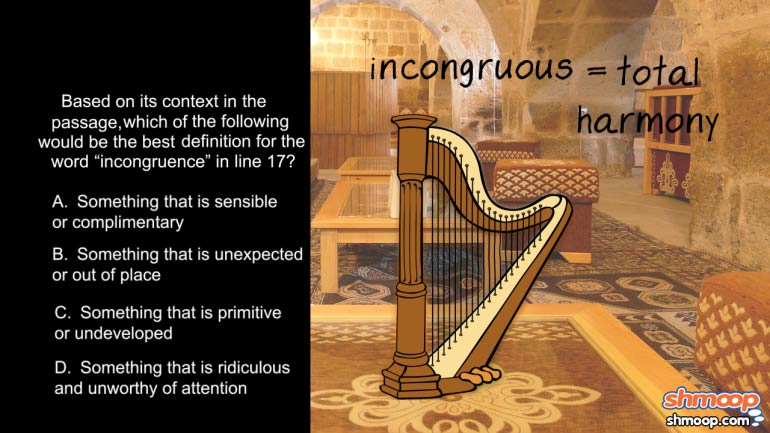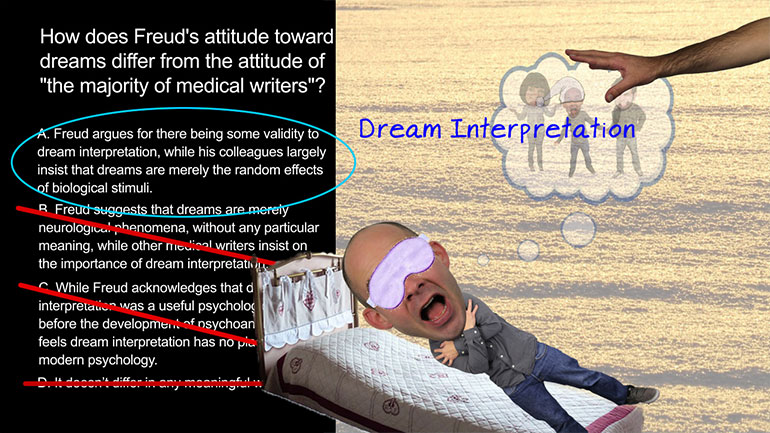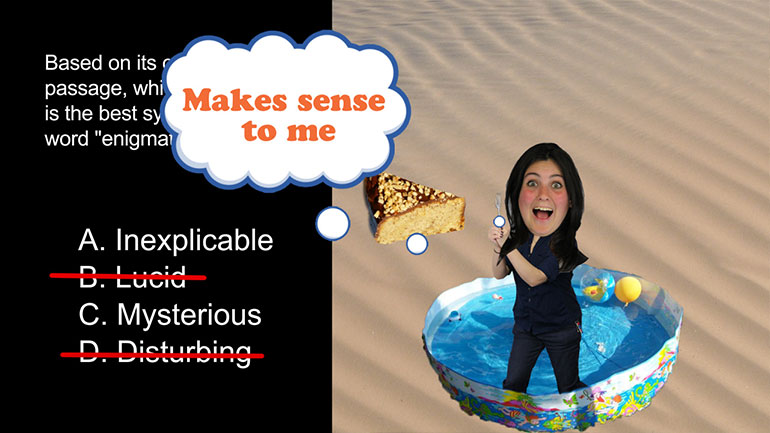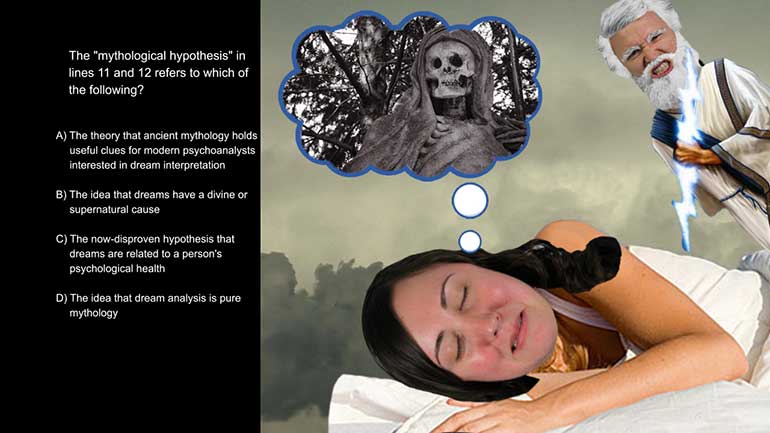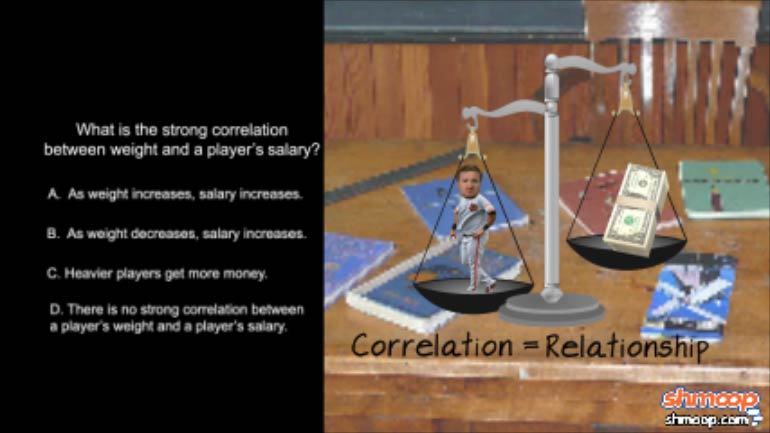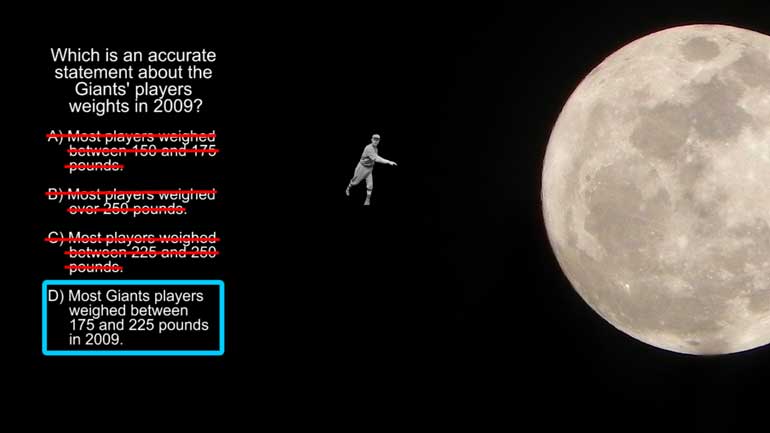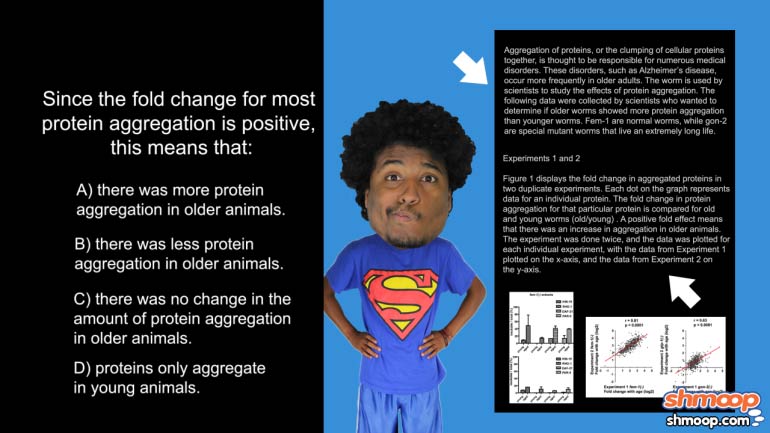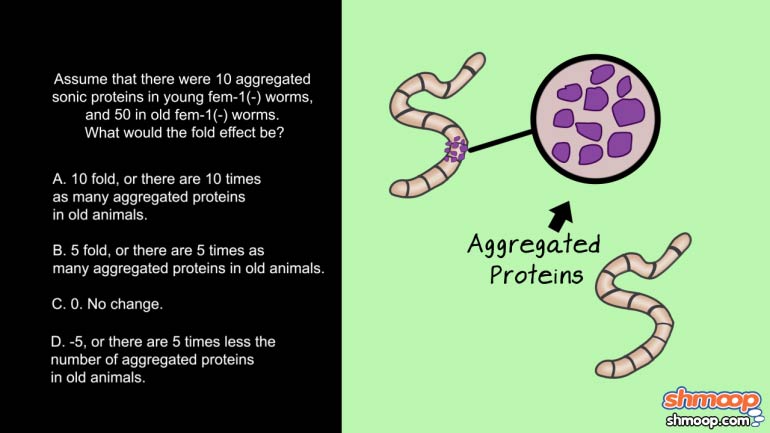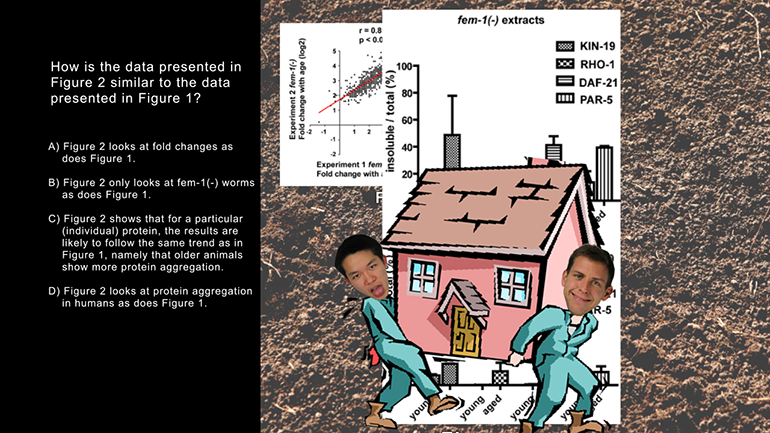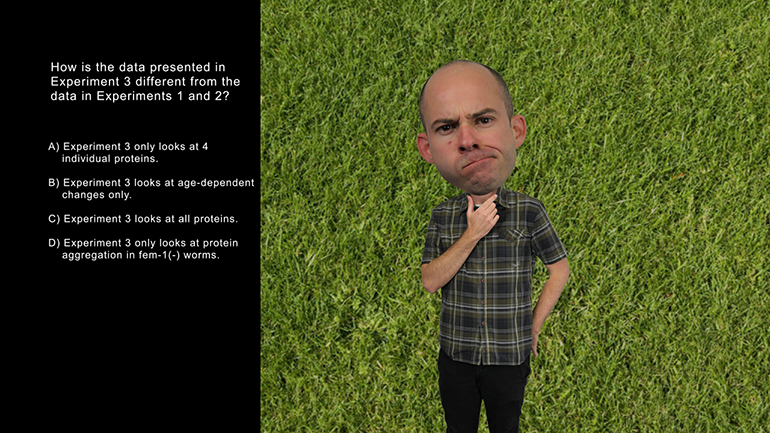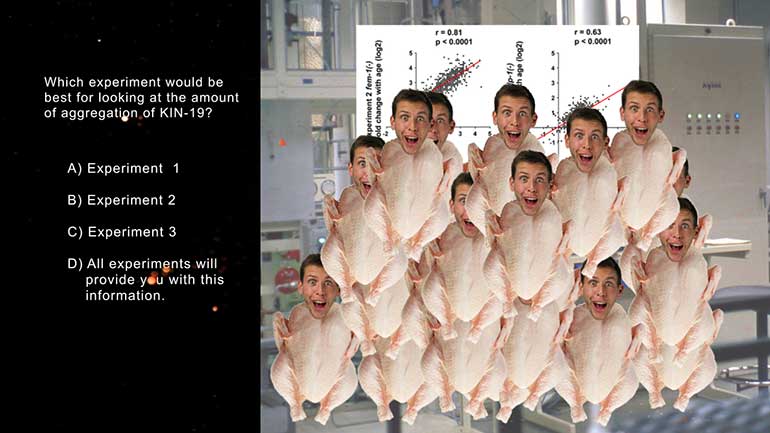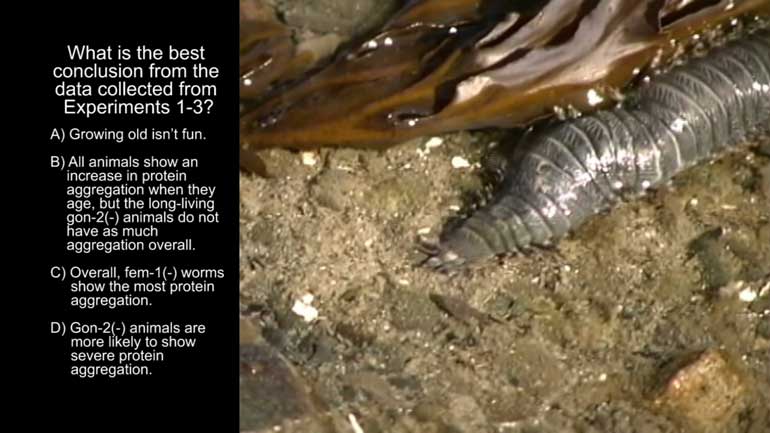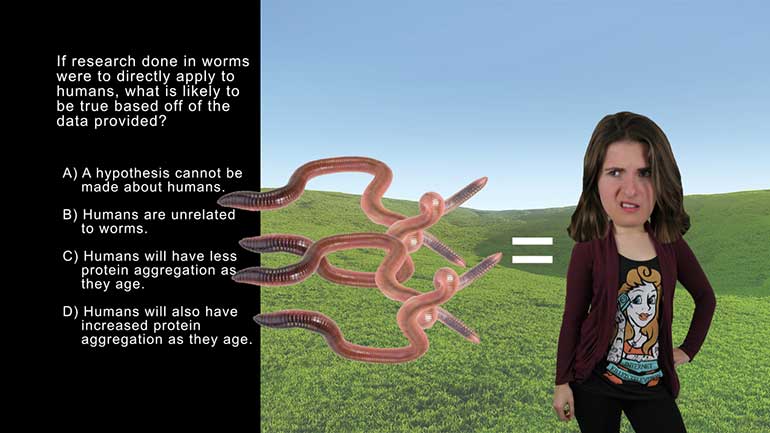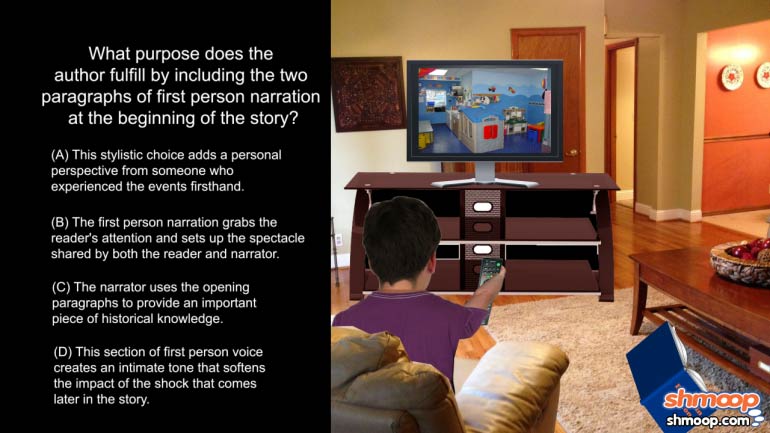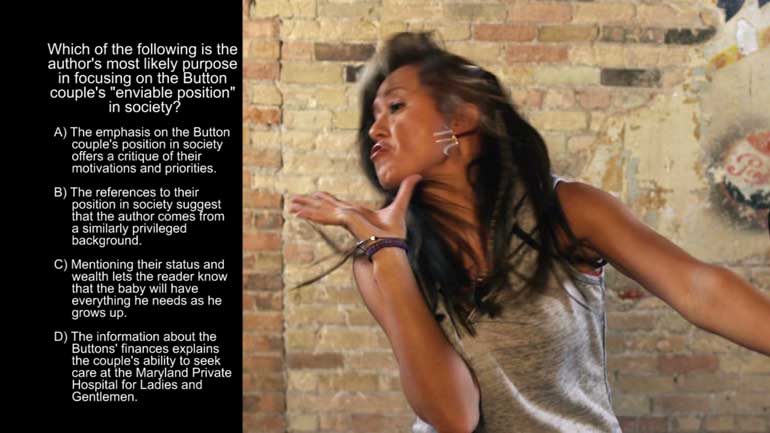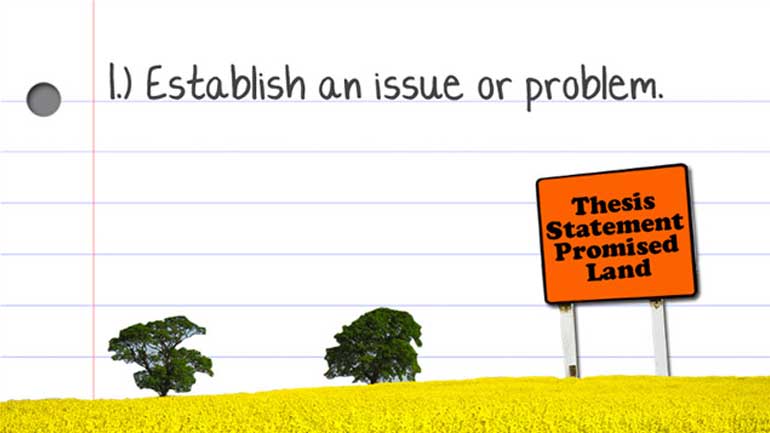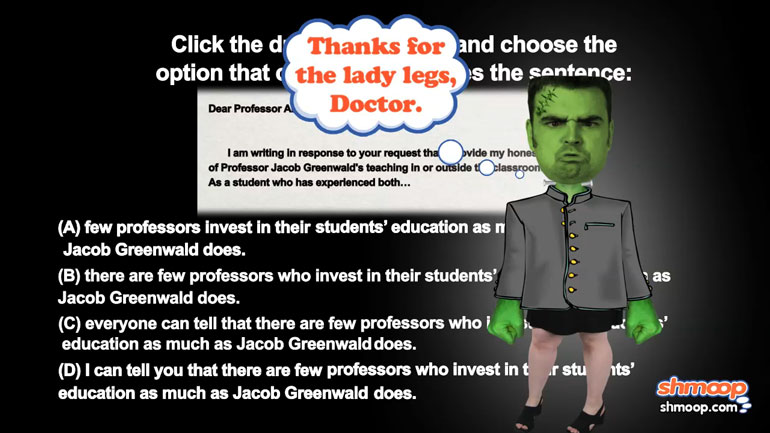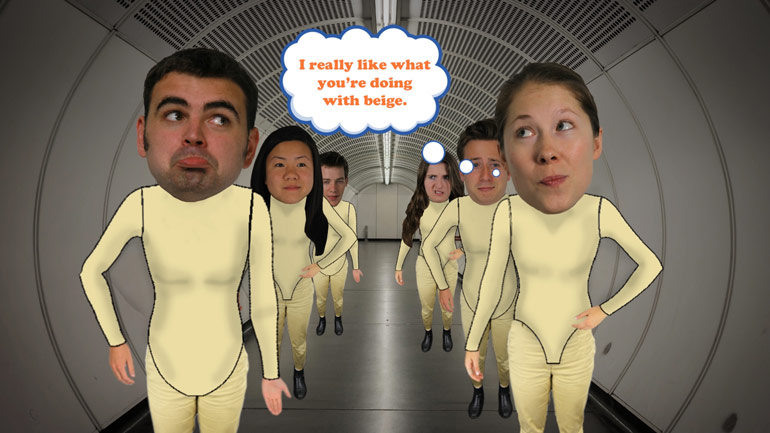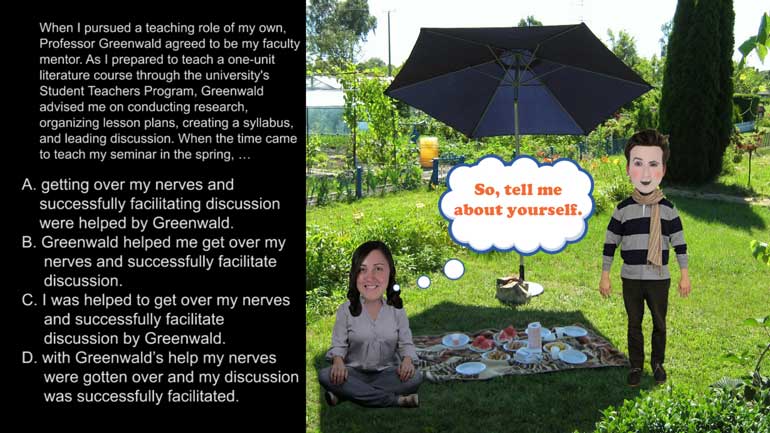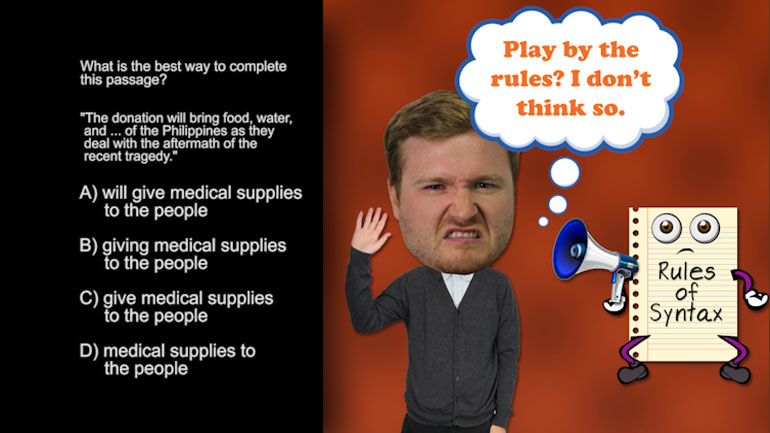ShmoopTube
Where Monty Python meets your 10th grade teacher.
Search Thousands of Shmoop Videos
English I EOC Assessment Videos 175 videos
AP® English Language and Composition: Comprehension Drill 1, Problem 1. The speaker would agree with all of the following statements except what?
AP English Language and Composition: Comprehension Drill 1, Problem 3. What can the "personality" that the speaker describes be characterized as?
AP English Language and Composition: Comprehension 1.9
ACT English 1.2 Organization 319 Views
Share It!
Description:
ACT English: Organization Drill 1, Problem 2. Picking the right transition word.
- Rhetorical Skills / Organization: Sentences and Paragraphs
- Product Type / ACT English
- English I EOC Assessment / Introductory and Concluding Paragraphs
- English I EOC Assessment / Organization
- Expository Texts / Rhetorical Devices and Transistions
- Essay Revision / Coherence, Organization, and Word Choice
- Essay Revision / Rhetorical Effectiveness and Use of Organization
- Rhetorical Skills / Organization
Transcript
- 00:04
Here's your Shmoop du jour, brought to you by the wheels on the bus. Like Congress, they
- 00:08
just go 'round and 'round.
- 00:10
What should replace the underlined portion below, if anything?
- 00:15
Despite being late, I had also forgotten my backpack in the bus.
- 00:24
"Being late" is not a great thing... and neither is forgetting a backpack; both kinda
Full Transcript
- 00:27
exist in the same slacker world.
- 00:32
We have to keep this relationship in mind as we try to find the right transition word
- 00:36
or phrase to connect these ideas.
- 00:38
Choice (A) sets up the wrong relationship by using "despite." This word usually
- 00:43
sets up some kind of contrast. "My grandma is cool, despite all the camouflage she wears,"
- 00:49
would be an example.
- 00:50
We're not in the market for contrast in this sentence, however, so (A) is off the
- 00:54
table.
- 00:55
(B) is incorrect because this sentence stands alone, not as an example.
- 01:00
Something like this might have worked: "That kid was always slacking. For example, he was
- 01:05
continually late and always forgot his backpack."
- 01:08
We're trying to find the word or phrase that shows how these two things go together,
- 01:13
not how one is an example of the other.
- 01:19
Choice (C) is an incorrect usage of the transition "furthermore."
- 01:23
"Furthermore" is what's known as a conjunctive adverb, not a disease, and it's typically used to relate
- 01:29
two independent clauses to each other.
- 01:31
Something like, "I was late; furthermore, I had forgotten my backpack," would be on
- 01:36
the right track.
- 01:37
The trouble here is that "being late" is not an independent clause, meaning that's
- 01:42
it not a sentence that can stand on its own.
- 01:44
Also, "furthermore" comes before the two ideas we're trying to connect, rather than
- 01:48
in between them.
- 01:50
(D) wins the day by using the prepositional phrase "in addition to," which correctly
- 01:55
relates "being late" with the independent clause "I had also forgotten my backpack
- 02:01
in the bus."
- 02:02
Hey, at least there are worse times
- 02:23
to be late.
Related Videos
ACT English: Punctuation Drill 2, Problem 3. Where does the semicolon fit best?
ACT English: Punctuation Drill 2, Problem 2. Where should the semi-colon be placed?
ACT English: Punctuation Drill 3, Problem 1. How should this sentence be changed so that it is grammatically correct?
ACT English: Punctuation Drill 3, Problem 2. How should we properly hyphenate the words in this sentence?
ACT English: Punctuation Drill 3, Problem 4. Which choice best formats this list of items?

